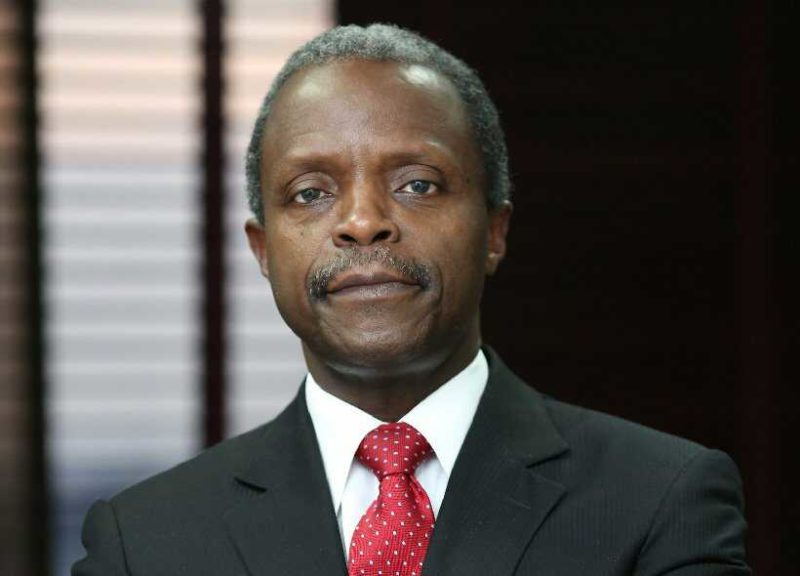The Presidential Investigative Panel to Review Compliance of the Armed Forces with Human Rights Obligations and Rules of Engagement, inaugurated on August 11, 2017 by Vice-President Yemi Osinbajo, when in acting capacity as the President, began its sitting in Abuja, on Monday, September 11, 2017.

The sitting of the panel at the headquarters of the High Court of the Federal Capital Territory (FCT), Maitama, holds till Friday, September 15, 2017.
The seven-man panel, led by a Justice of the Court of Appeal, Justice Biobele Abraham Georgewill, will in its five-day sitting for the North-Central Zone in Abuja, investigate alleged acts of violations of international humanitarian and human rights laws under the 1999 Constitution of the Federal Republic of Nigeria.
It will also conduct its investigations on the alleged acts of violations under the Geneva Convention Act, African Charter on Human and People’s Rights (Ratification and Enforcement) Act, and other relevant laws by the Armed Forces in local conflicts and insurgencies.
Allegations were leveled against the military by Amnesty International where it named and called on the Nigerian government to investigate nine high-ranking military officials for potential individual and command responsibility.
It had also published a public statement calling on the government and the presidential investigative panel to address key concerns including documented alleged “gross and massive violations and abuses committed by all sides to the non-international armed conflict in the North-East of the country as well as human rights violations in the rest of Nigeria”.
This included evidences of war crimes and possible crimes against humanity.
Vice President Osinbajo, during the inauguration of the panel in August, said all the allegations leveled against the armed forces and other security agencies must not go unaddressed so as to safeguard the good image of Nigeria.
The panel, on Tuesday, opened proceedings with two witnesses from petitioner: Moon Valley Community in Kwande Local Government, Benue State. “Moon” is pronounced as “Mon”.
The predominantly Tiv community had had a long history of communal clashes with its neighboring Kashinbilla Community inhabited by the Jukun tribe over land border issues as far back as 1998. Both communities share an interstate boundary of Benue and Taraba states.
The first witness was Jacob Kwaghkper, a retired Deputy Director with the Federal Civil Service at Federal Commission for Colleges of Education, now resident in Markudi.
He had also declared himself representative of the victims from the Moon Valley Community who had petitioned the Chief of Army Staff (COAS), the House of Representatives and the National Human Rights Commission (NHRC) in May 2013 on alleged human rights violations by the Nigerian Army, specifically its 93 Battalion stationed in Takum, in Taraba State.
He told the panel that the 93 Battalion positioned a unit at Kashinbilla community in such a way that its compound equally shares boundary with Moon Valley Community in Benue State. The Unit was positioned by the 93 Battalion as a result of the consistent skirmishes between both communities.
While being led in examination by the Community’s counsel, Mike T. Utsaha, he told the panel that the Nigerian Army, who was expected to act as mediator in the protracted skirmishes, rather, took sides regularly with the Jukun side.
He said: “On February 3, 2014 the Nigerian Army 93 Battalion in Takum (Taraba State) attacked the Moon Valley Community and drove out the entire community out of our ancestral home. As we appear before you, indigenes of Moon have been displaced in Tiv land.”
The second witness, a farmer, Abo Utah, told the panel that he was beaten and dragged on the ground by troops of the military when he asked questions about where they had taken his younger sister and his brother’s wife.
He added that he was taken in a vehicle with some others to the military base in Takum, put in a guard room and was released on bail after being charged to a Magistrate Court in Takum for “committing trouble” at Moon Valley.
He told the panel that he became a victim of abuse during the conduct of an election in Moon Valley on December 8, 1998 when a soldier showed up and disrupted the voting process.
He explained that the people had disagreed with the soldier and his disruption and continued. However, the soldier returned with the armored tanks and shot sporadically and chased the people out of the community.
He said that, thereafter, “the Jukun came and touched our houses we left behind and handed it over to the Fulani’s”.
He added that the Fulani’s, who have been nomadic, currently live on their land which they have interest in because of its rich fertility and waters.
He and the first witness, among other things, urged the panel to intervene and asked that the military should be kept from intervening in matters of the community and sent back to their barracks.
They also asked that the displaced persons from their village be returned so they can get back to their livelihoods.
By Chinyere Obia
